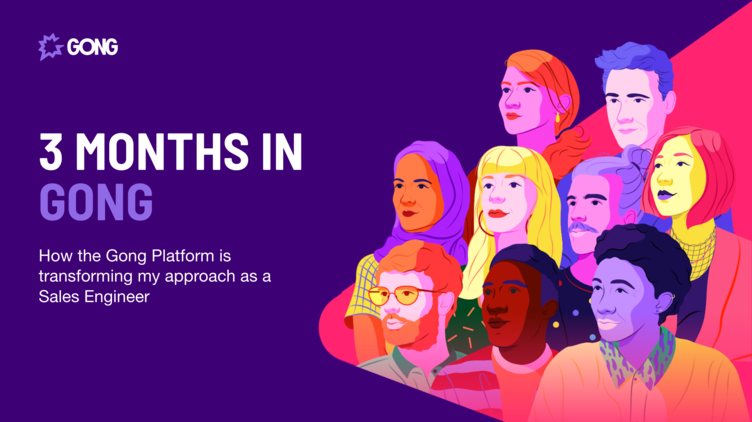This article is adapted from my LinkedIn post and repurposed here.
Here are 3 ways I’m personally benefiting from using Gong as a Sales Engineer. And no, this wasn’t written by ChatGPT.
Rapid onboarding for Sales Engineers
SEs need to know the ins and outs of the product we’re selling and probably most importantly, how to break it. This knowledge building takes time and there’s only so much you can learn from reading. A lot of the learning takes place by shadowing calls and 1:1s with experienced SEs. This presents 3 challenges:
- This puts a lot of pressure on the experienced SEs. They’re likely already busy running deals and this will further stretch them to ensure they’re actively including and sharing knowledge with the newer SE.
- Deals aren’t won/lost in 1 call. It’s likely impossible for the new SE to shadow a deal start to finish and ensure they understand the right context of a call.
- Picking the right call to shadow is sometimes a roll of the dice. It could be an outlier discussion or even a train wreck.
Onboarding doesn’t end after a set period, but I felt ‘onboarded’ after little over a month. I’d see that as being consciously aware of what I don’t know and confident to run customer calls without further support. A lot of that comes down to our star Enablement Manager, Jen Silvestri, and my esteemed mentor, Craig Ellis. Here’s what stood out:
- I had a clear path to success from them and it heavily involved the use of Gong.
- There were curated folders of best practice calls with customers, calls that involved integrations, calls that showed the curveballs – the stuff that scares us.
- I could see firsthand how the best navigated calls and compared many different styles.
- I even followed historical deals all the way from Qualification to Closed Won.
In three months, I’ve listened to 229 calls. That’s the equivalent of being exposed to 229 deals. GPT-3 ingested the internet, I ingest Gong’s deals.
Clear handovers from AEs
An SE relies on the information an AE provides to best prepare for the next discovery/demo/Q&A call. Without this information, we’re going in blind and that rarely works well. In the past, I’ve gotten this information from either the CRM or a 1:1 with the AE before the call. This presents 2 challenges:
- The information within the CRM is highly filtered. The data shows that if around 6000 words are spoken on a qualification call, around 30 words (0.5%) make it into the CRM. An AE and SE, naturally, has a different perspective on a call. Those 30 words in the CRM are highly subjective and are potentially missing crucial aspects that we need to know.
- To make up the gaps, I’ve often scheduled 1:1s with AEs before a call. This time is mainly used for the AE to recap what they’ve heard and less about strategy for the next call. This is an inefficient use of time for an AE and SE and often the recap is based on those 30 words from the CRM.
With Gong, I’ve been able to view every unfiltered interaction that took place before I got involved. I can see key pieces of information that have been extracted automatically from the conversation, identifying things like: tech stack, questions asked, challenges, objections, key needs, etc. I can quickly see what an AE showed or discussed already, so I can be laser-focused on what I need to show next to the prospect. And if I really want to, I can listen to the conversation at 1.5x speed, while walking the dogs (yep, there’s two doggos now). The best part in all of this is that I’ve now got full control over my prep work.
Effective feedback for Sales Engineers
I’ve always been an advocate for effective feedback. I have to thank Ciaran Cushley for his avoidance of the term ‘constructive feedback’. He does a better job of explaining the reasoning behind it than me. Effective feedback needs to be many things but fundamentally, it needs to be specific, impactful and timely. My experience before Gong meant that you had to shadow calls to get/give feedback. As you can likely guess, I had 3 main challenges with that approach:
- Being specific is tough, especially when you’re listening to a conversation live. When you’re taking notes, your active listening takes a hit. Remembering exactly how an SE/prospect phrases things can make a big difference. We also all suffer from recency bias.
- When you’ve gotten the specific piece of feedback, you need to ensure it’s impactful to mention it to the SE. It could be a small thing that has little influence on the deal. Or vice-versa. This leads to the experienced SE being subjective on what they decide is impactful or not. A lot of it comes down to experience, but we’re oftentimes basing our judgment on subjective experience, maybe it’s impactful in your eyes, but the data proves otherwise.
- We’ve likely just spent 1-hour shadowing the call and now have a back-to-back meeting or another to prep for after the call. This means the opportunity to actually give the feedback to the SE gets pushed. Specifics get murky, recency bias increases and when you eventually get around to the feedback session, it’s a subjective, feedback sandwich, mess.
We’re lucky to have a genuine feedback culture at Gong and thankfully with the Gong Platform, it’s easy to give effective feedback. Each conversation is automatically transcribed and indexed, allowing anyone to provide insight, without the need to shadow. Colleagues leave comments at specific time stamped locations on the conversation, allowing them to draw my attention back in time. Because Gong’s AI has analysed over 1 billion Sales conversations, we know what elements have impact on deal closing. If I’m speaking too much, going on a long monologue or being impatient, each piece of feedback is directly supported by clear evidence of it having impact on revenue. Lastly, because the conversation is evergreen, we no longer need to have those dedicated ‘feedback sessions’, it happens whenever either party is free.
Closing thoughts
I’ve developed a lot as an SE over these months and it hasn’t stopped. As I uncover new aspects of Gong’s impact, I’ll continue to share them with you all. Let me know if you can relate to any of the challenges I’ve faced!
If you made it this far and stumbled on this blog, I’ve created an extension to help you give better live demonstrations.


Pingback: Best Tools for Sales Engineers - Demo Persona